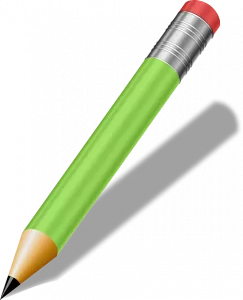
Learn French conjugation
If you are here is that you want to learn and improve your French, well done!
That’s a great idea 😀

Let a comment at the end of the article to tell me what you think about it:
- Do you like it?
- Does it help you?
- Do you have any questions that you want me to anwser?
- Do you want to learn more about French conjugation?
Learn French conjugation: here we are guys!

Present tense
The english language has 3 ways of talking in the present tense:
- I speak – Je parle
- I am speaking – Je suis en train de parler
- I do speak – Je parle
whereas the French language has 1 way:
- Je parle
1rst group verb (-ER)
Parler (to speak / to talk)
Je parle
Tu parles
Il/elle parle
Nous parlons
Vous parlez
Ils/elles parlent
2nd group verb (-IR)
Finir (to finish)
Je finis
Tu finis
Il/elle finit
Nous finissons
Vous finissez
Ils/elles finissent
3rd group verb
Apprendre (to learn)
J'apprends
Tu apprends
Il/elle apprend
Nous apprenons
Vous apprenez
Ils/elles apprennent

The future tense
Futur simple
It is form with the verb in its infinitive form attached to the appropriate verb ending.
- I will speak – Je parlerai
1rst group verb (-ER)
Parler (to speak / to talk)
Je parlerai
Tu parleras
Il/elle parlera
Nous parlerons
Vous parlerez
Ils/elles parleront
2nd group verb (-IR)
Finir (to finish)
Je finirai
Tu finiras
Il/elle finira
Nous finirons
Vous finirez
Ils/elles finiront
3rd group verb
Apprendre (to learn)
J'apprendrai
Tu apprendras
Il/elle apprendra
Nous apprendrons
Vous apprendrez
Ils/elles apprendront
Futur proche
It’s a compound tense, so we use 2 verbs next to each other to form it. The futur proche takes the verb aller (to go) conjugated in the present tense, then we had the infinitive form of any verbs as our second verb.
- I am going to speak - Je vais parler
1rst group verb (-ER)
Parler (to speak / to talk)
Je vais parler
Tu vas parler
Il/elle va parler
Nous allons parler
Vous allez parler
Ils/elles vont parler
2nd group verb (-IR)
Finir (to finish)
Je vis finir
Tu vas finir
Il/elle va finir
Nous allons finir
Vous allez finir
Ils/elles vont finir
3rd group verb
Apprendre (to learn)
Je vais apprendre
Tu vas apprendre
Il/elle va apprendre
Nous allons apprendre
Vous allez apprendre
Ils/elles vont apprendre
Futur antérieur
Is used to talk about an event in the future that happens before another event in the future. We form the futur antérieur with the past participle as our second verb, and the verbs avoir (to have) ou être (to be) as our 1rst verb as if they were in the futur simple. Any verbs that falls into the Dr & Mrs VAN DER TRAMPP list of verbs or that is a reflexive verb will use être and all others will use avoir.
- I will have went to the market - Je serai aller au marché
- I will have spoken – J’aurai parlé
- You will have finished your work by the time I ring you – Tu auras fini ton travail avant que je t’appelle

The past tense
Passé composé
It’s a compound verb. It’s form with the past participle as our 2nd verb. Avoir (to have) ou être (to be) are conjugated as if they were in the present tense and are use as the 1rst verb. Any past participle that falls into the Dr & Mrs VAN DER TRAMPP list of verbs or that is a reflexive verb will use être and all others will use avoir.
- I spoke / I have spoken – J’ai parlé
- I went to the market - Je suis allé au marché
1rst group verb (-ER)
Parler (to speak / to talk)
J'ai parlé
Tu as parlé
Il/elle a parlé
Nous avons parlé
Vous avez parlé
Ils/elles ont parlé
2nd group verb (-IR)
Finir (to finish)
J'ai fini
Tu as fini
Il/elle a fini
Nous avons fini
Vous avez fini
Ils/elles ont fini
3rd group verb
Apprendre (to learn)
J'ai appris
Tu as appris
Il/elle a appris
Nous avons appris
Vous avez appris
Ils ont appris
Imparfait (imperfect tense)
We conjugate any verb in the present tense with nous, then we take out -ons and add-on the ending for the imparfait.
- I was speaking – Je parlais
1rst group verb (-ER)
Parler (to speak / to talk)
Je parlais
Tu parlais
Il/elle parlait
Nous parlions
Vous parliez
Ils/elles parlaient
2nd group verb (-IR)
Finir (to finish)
Je finissais
Tu finissais
Il/elle finissait
Nous finissions
Vous finissiez
Ils/elles finissaient
3rd group verb
Apprendre (to learn)
J'apprenais
Tu apprenais
Il/elle apprenait
Nous apprenions
Vous appreniez
Ils/elles apprenaient
Plus-que-parfait
The plus-que-parfait is used to talk about an event in the past that occured before another event in the past. This is the equivalent of the futur antérieur but in the past. To form it we take the past participle as our 2nd verb, and our 1rst verb as avoir (to have) ou être (to be) conjugated in the imparfait tense.
- I had spoken – J’avais parlé
- You had called me before I finshed my work – Tu m'avais appelé avant que je finisse mon travail
1rst group verb (-ER)
Parler (to speak / to talk)
J'avais parlé
Tu avais parlé
Il/elle avait parlé
Nous avions parlé
Vous aviez parlé
Ils/elles avaient parlé
2nd group verb (-IR)
Finir (to finish)
J'avais fini
Tu avais fini
Il/elle avait fini
Nous avions fini
Vous aviez fini
Ils/elles avaient fini
3rd group verb
Apprendre (to learn)
J'avais appris
Tu avais appris
Il/elle avait appris
Nous avions appris
Vous aviez appris
Ils/elles avaient appris
Passé simple
You’ll rarely hear the passé simple in spoken French, but you’ll often see it in books. The Passé composé is almost exclusively use no spoken French and in written French for communication purposes, whereas le passé simple is almost used exclusively for writing stories and narratives.
- I spoke - Je parlai
1rst group verb (-ER)
Parler (to speak / to talk)
Je parlai
Tu parlas
Il/elle parla
Nous parlâmes
Vous parlâtes
Ils/elles parlèrent
2nd group verb (-IR)
Finir (to finish)
Je finis
Tu finis
Il/elle finit
Nous finîmes
Vous finîtes
Ils/elles finirent
3rd group verb
Apprendre (to learn)
J'appris
Tu appris
Il/elle apprit
Nous apprîmes
Vous apprîtes
Ils/elles apprirent

Conditionnal
Présent conditionnel
It’s used to express that something would happen if a specific condition was fullfilled.
- I would speak French if I lived in France – Je parlerais français si je vivais en France
1rst group verb (-ER)
Parler (to speak / to talk)
Je parlerais
Tu parlerais
Il/elle parlerait
Nous parlerions
Vous parleriez
Ils/elles parleraient
2nd group verb (-IR)
Finir (to finish)
Je finirais
Tu finirais
Il/elle finirait
Nous finirions
Vous finiriez
Ils/elles finiraient
3rd group verb
Apprendre (to learn)
J'apprendrais
Tu apprendrais
Il/elle apprendrait
Nous apprendrions
Vous apprendriez
Ils/elles apprendraient
Passé conditionnel
- I would have sung on stage if I had not lost my voice - J'aurais chanté sur scène si je n'avais pas perdu ma voix
1rst group verb (-ER)
Parler (to speak / to talk)
J'aurais parlé
Tu aurais parlé
Il/elle aurait parlé
Nous aurions parlé
Vous auriez parlé
Ils/elles auraient parlé
2nd group verb (-IR)
Finir (to finish)
J'aurais fini
Tu aurais fini
Il/elle aurait fini
Nous aurions fini
Vous auriez fini
Ils/elles auraient fini
3rd group verb
Apprendre (to learn)
J'aurais appris
Tu aurais appris
Il/elle aurait appris
Nous aurions appris
Vous auriez appris
Ils/elles auraient appris

Imperative
It’s use to command orders. No subject is included as it’s implied who you are speaking to.
Présent
- Give me that – Donne-moi ça
- Take your bike out of the garden – Mets ton vélo en dehors du jardin
1rst group verb (-ER)
Parler (to speak / to talk)
Parle
Parlons
Parlez
2nd group verb (-IR)
Finir (to finish)
Finis
Finissons
Finissez
3rd group verb
Apprendre (to learn)
Apprends
Apprenons
Apprenez
Passé
It’s use to give someonea command with a deadline.
- Have it done by Thursady - Faites-le avant jeudi
1rst group verb (-ER)
Parler (to speak / to talk)
Aie parlé
Ayons parlé
Ayez parlé
2nd group verb (-IR)
Finir (to finish)
Aie fini
Ayons fini
Ayez fini
3rd group verb
Apprendre (to learn)
Aie appris
Ayons appris
Ayez appris

Subjunctive
It’s used to discuss some opinions, emotions, requests, demands or unlikely event.
Présent
1rst group verb (-ER)
Parler (to speak / to talk)
Que je parle
Que tu parles
Qu'il/elle parle
Que nous parlions
Que vous parliez
Qu'ils/elles parlent
2nd group verb (-IR)
Finir (to finish)
Que je finisse
Que tu finisses
Qu'il/elle finisse
Que nous finissions
Que vous finissiez
Qu'ils/elles finissent
3rd group verb
Apprendre (to learn)
Que j'apprenne
Que tu apprennes
Qu'il/elle apprenne
Que nous apprenions
Que vous appreniez
Qu'ils/elles apprennent
Write in the comment section if you have any questions?
Thomas, your French teacher 😀
+++++++++++++++++++++++++++++++++++++++++++++++++++++
+++++++++++++++++++++++++++++++++++++++++++++++++++++

Thomas Ricomard specializes in teaching French as a foreign language. He has been providing private lessons since 2015, both in-person and online (via Skype). He taught at the Popular University of the Canton of Geneva (Switzerland) from 2015 to 2018, instructing several groups of 20 students from around the world (United States, Canada, United Kingdom, Spain, Brazil, South Africa, Zimbabwe, Mexico, etc.), ranging from beginner to intermediate levels (A1 to B2). With a Master’s degree in clinical and cognitive psychology from the University of Geneva, his knowledge of psychology allows him to tailor his teaching methods for optimal learning, taking into account factors such as visual memory versus auditory memory. He expresses his passion for the French language through writing texts, including poetry and songs, which he presents publicly at numerous music and slam events.
